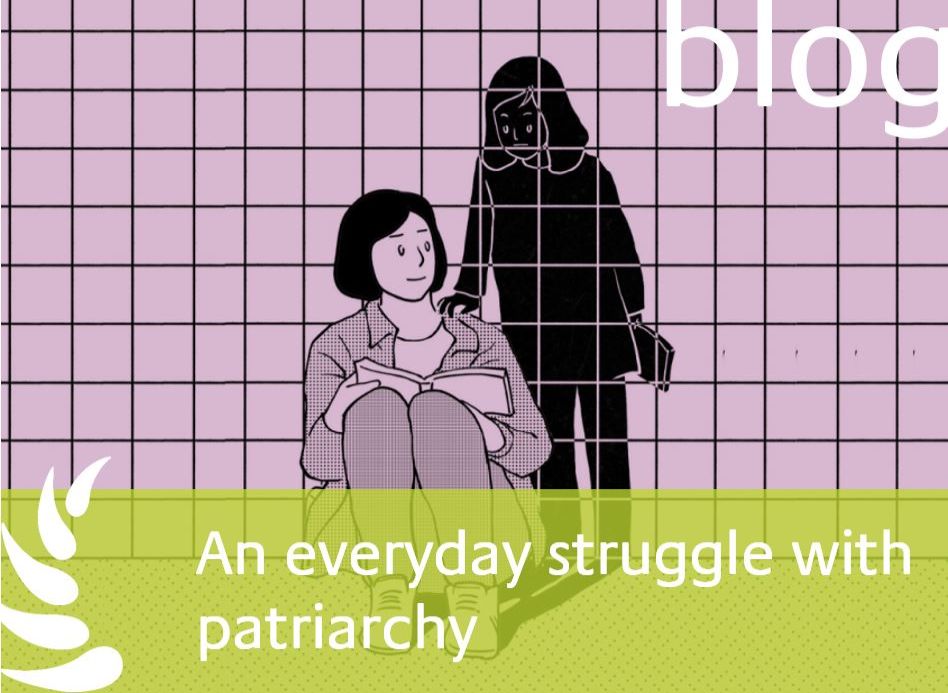An everyday struggle with patriarchy
Every now and then, we like to post articles from the blogosphere that catch our attention.
Disclaimer: The views, thoughts, and opinions expressed in the text belong solely to the author, and not necessarily to kanthari.
This article has made some of us reflect on the nature of parent-child relationships in India, and other south-asian cultures. In two weeks from now we will be writing about the struggles of growing up into independent adulthood in the context of the traditional Indian family.
By Zoya Raj Singh (Instagram @zedohwhyayy.)
The original article was published Nov 5th 2020 on:
http://livewire.thewire.in/personal/an-everyday-struggle-with-patriarchy/
“It takes a great deal of honesty to acknowledge that we may, unknowingly so, propagate patriarchy in our everyday lives. As a concept, patriarchy seems immune to semantic satiation. It continues to occupy the ever central role in our quotidian being as it has since, perhaps, the cognitive revolution that sparked nearly 70,000 years ago.
This pandemic has proven to be quite the learning experience for some of us, about ourselves and about others, while blissful ignorance is the motto for most. A glance at your local newspaper will evidence that. Personally, there has been a battle in my mind, between standing firm in my belief that women’s emancipation comes from the increasingly active role they play in their lives on the one hand, and anger at my mother for choosing to work away from her family on the other.
Mi madre works in the United Arab Emirates. I live in India. Such has been the situation for the past five years. What seemed like a relief to the arrogant, raging teenager of my yesteryear’s has recently – and I hold the pandemic accountable – become a bone of contention between mother and daughter. My mother was afforded the opportunity to advance her career in a direction that she has long dreamed of, not something of an everyday occurrence.
Despite the many voices within and without her head, she did what most other women her age, owing to the societal/family pressure or their own personal reasons, would have let pass. It was a bold step in itself, moving and starting a life in a completely unfamiliar country by one’s lonesome self to carve a niche within her profession. It is nothing less than inspirational when coupled with the rest of her personality.
Ordinarily, and while studying away from home myself, my mother’s absence was felt only in small part. What has become the seemingly normative method of communication over the pandemic, via Zoom and Ms Teams, has been modus operandi in our context. However, what is out of the ordinary is my reaction to her passion and commitment for her work.
The constant questioning of the same by others during my overdue stay at home has led to a visible impact on my perception of the situation. The statements against her range from, “She has prioritised her work over her husband and child”, “she has left her family behind”, and that “she isn’t here to take care of her house” – each more problematic than the last and each selectively worded to indicate the general feeling of unhappiness at a perfectly independent and ambitious women, as herself, going against the conventional idea of a family, of being a mother/wife/daughter-in-law.
It seems intolerable to some that the act of being a mother, and a working one at that, be performed in any other way save for that which has been taught or consumed off of mass media. It is a performed act in that it is akin to a character that is created for the benefit of other people, a label for the ease of identification. And once an individual falls out of the label, s/he becomes difficult to identify and thereby unfamiliar. That which is unfamiliar is often treated with belligerence.
I had internalised these statements and believed, for a brief moment, that she is my mother, that and nothing else. Every call resulted in squabbling, tears and guilt – guilt for the knowing burden and worry that I was causing her, guilt for my inability to comprehend her commitment to her profession while others my age spent the pandemic with their own mothers, and mostly guilt for having momentarily been swayed by the dogmatic ideas that plague the minds of others around me.
Patriarchy, with all of its offshoots, is deeply and strongly entrenched in the culture and methods around us; the knowledge of that is not brand-new information. Realising the level of normalisation that it still holds, and the unconscious effect it has on us, in our lives or in being practiced, is each individual’s path to self awareness and learning.
I continue to unlearn with every passing day to learn anew, a paramount step in moving away from such stigmatised notions, and seek inspiration from the ready examples of empowered women in my life. The path towards establishing complete and utter equality of all genders is fraught. However, proactivity is the need of the hour.”

